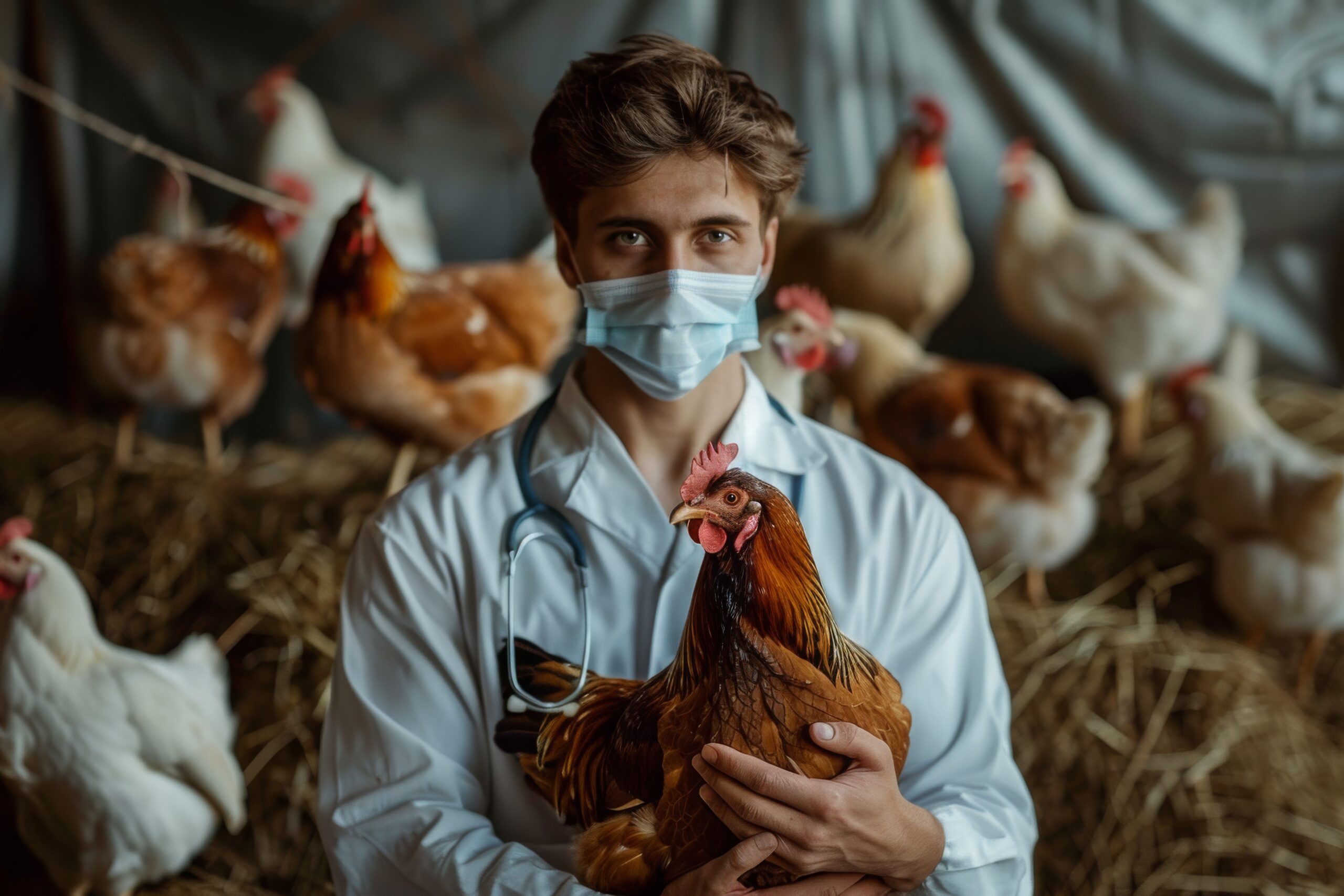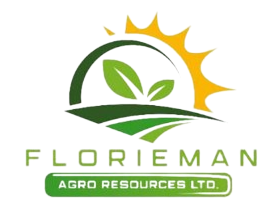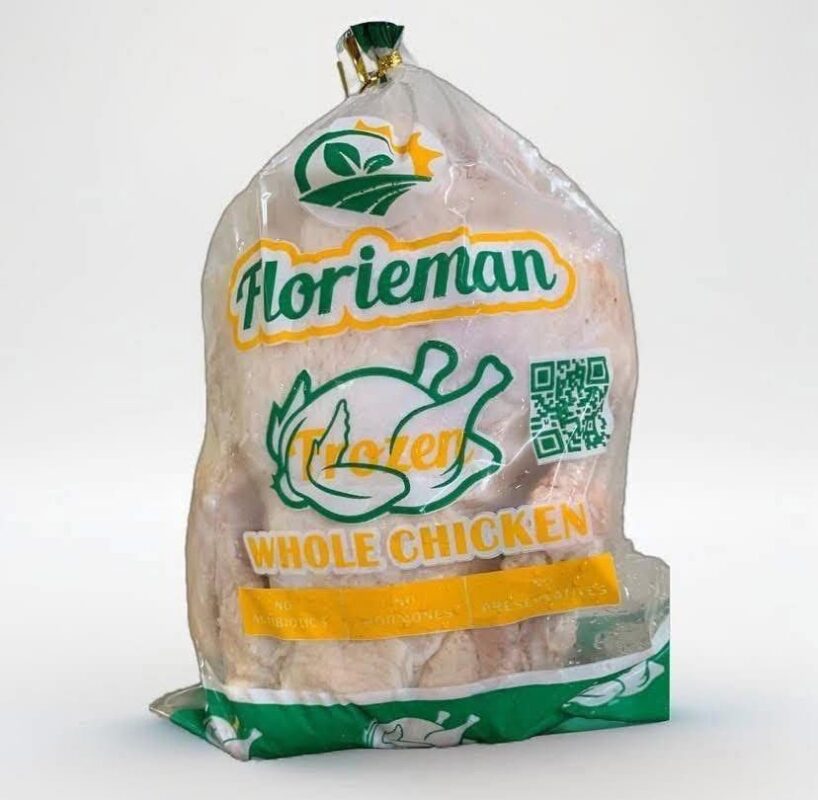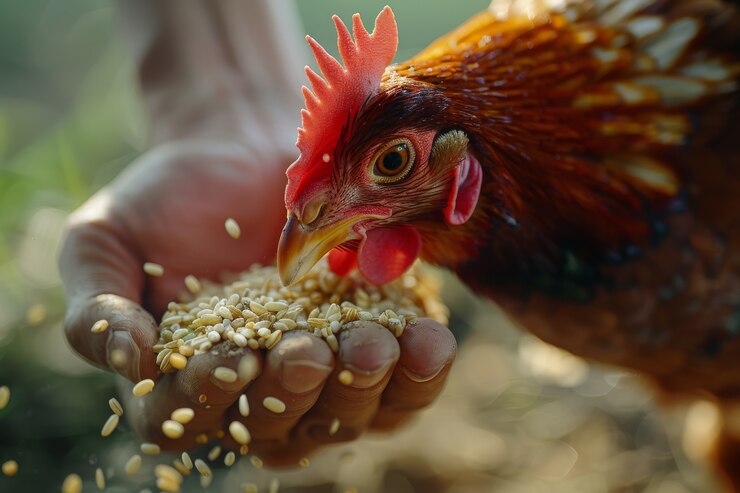HEALTH MANAGEMENT: A CONCERN IN POULTRY FARMING

Are you into poultry farming for eggs or for meat? In poultry farming, in order to have success with your small or large poultry flock, you need to make sure you start and end with a healthy flock. This is best done through proper management and preventive practices. However, as a poultry farm owner, it’s likely that you’ll have to deal with sick animals at some point. Being able to identify a disease issue in your flock will also aid you in the decision-making process and in preventing continued outbreaks. With an extensive number of diseases and disorders that could enter your flock, use this as a guide on how to manage and prevent some of the major diseases that could impact your poultry farm.
Health management in poultry farming is crucial for ensuring the well-being of the birds and the profitability of the operation. Effective health management involves a combination of good practices, preventive measures, and timely interventions to prevent diseases and promote the overall health of the flock.
For poultry health management to be effective the primary aim must be to prevent the onset of disease or parasites, to recognise at an early stage the presence of disease or parasites, and to treat all flocks that are diseased or infested with parasites as soon as possible and before they develop into a serious condition or spread to other flocks. To be able to do this it is necessary to know how to recognise that the birds are diseased, the action required for preventing or minimizing disease and how to monitor for signs that the prevention program is working.
Common health issues in poultry and their impact
Poultry birds can be susceptible to a variety of health issues, which can have a significant impact on their overall well-being and productivity. Some of the common health issues in poultry include respiratory infections, digestive disorders, parasitic infestations, and viral diseases. These health problems can lead to decreased growth rates, reduced egg production, poor feed conversion, and increased mortality rates. It is essential for poultry farmers to be able to recognize the signs and symptoms of these health issues and take appropriate measures to prevent and treat them.
Principles Of Health Management
The key principles of poultry health management are:
• Prevention of disease
• Early recognition of disease
• Early treatment of disease
As much as possible disease should be prevented. It is easier and less damaging to prevent disease than it is to treat it. However, it must not be assumed that all disease can be prevented. Inevitably, some will get past the defenses, in which case it becomes imperative that the condition is recognised as early as possible to allow treatment or other appropriate action to be implemented as soon as possible to bring the situation under control to limit damage to the flock.
BASIC HEALTH MANAGEMENT PRACTICES IN POULTRY FARMING
Biosecurity Measures
Isolation: Keep new or sick birds isolated from the rest of the flock to prevent the spread of diseases.
Sanitation: Regularly clean and disinfect poultry houses, equipment, and water systems to reduce the risk of disease.
Visitor Control: Limit access to the poultry area and ensure visitors follow strict hygiene protocols.
Vaccination Programs
Implement a vaccination schedule tailored to the specific diseases prevalent in your area. Common vaccines include those for Newcastle disease, Marek’s disease, and infectious bronchitis.
Ensure vaccines are stored and administered correctly to maintain their efficacy.
Nutritional Management
Provide a balanced diet that meets the nutritional needs of the poultry at different stages of their life.
Ensure clean, fresh water is available at all times.
Monitor feed intake and adjust rations based on the birds’ age, production stage, and health status.
Get Quality and nutritious feeds here
Environmental Control
Maintain appropriate temperature, humidity, and ventilation in the poultry house to reduce stress and prevent respiratory issues.
Ensure proper lighting schedules to promote healthy growth and egg production.
Disease Monitoring and Early Detection
Regularly observe the flock for signs of illness such as lethargy, changes in behavior, abnormal droppings, or respiratory symptoms.
Conduct regular health checks and laboratory tests to detect diseases early.
Parasite Control
Implement regular deworming and external parasite control programs to prevent infestations of mites, lice, and worms.
Keep the environment clean and dry to reduce the risk of parasites.
Stress Management
Minimize stress factors such as overcrowding, sudden changes in environment, or rough handling, as stress can weaken the immune system and make birds more susceptible to diseases.
Provide adequate space per bird to reduce competition and stress.
Record Keeping
Maintain detailed records of health status, vaccination schedules, feed consumption, growth rates, and production levels to track the flock’s health and identify any emerging issues.
Proper Waste Management
Dispose of poultry waste and dead birds properly to prevent the spread of diseases.
Composting or incineration are common methods for managing poultry waste.
Access to Veterinary Care
Establish a relationship with a qualified poultry veterinarian who can provide regular health assessments and assist with disease diagnosis and treatment.
Training and Education
Continuously educate yourself and your staff on the latest best practices in poultry health management.
Attend workshops, read industry publications, and stay informed about new diseases and treatment methods.
Our approach
As the challenges facing the poultry industry evolve, so does our response. Our focus on efficient and sustainable poultry solutions provides a targeted, efficacious and consistent approach to help support global poultry production.
By harnessing science and working in partnership with our customers, we’re helping to deliver sustainable poultry production that respects animals, people and the planet while delivering the volume, price and margin customers demand and the poultry community is capable of supplying. Our three business lines — Essential Products, Performance Solutions + Biomin, Precision Services — offer an end-to-end portfolio addressing your needs.
CONCLUSION
Effective health management in poultry farming requires a proactive approach, focusing on prevention rather than treatment. By implementing these practices, you can maintain a healthy flock, reduce mortality rates, and increase productivity.
visit https://floriemanagro.com
REFERENCES
-Principle of Health Management
(https://www.poultryhub.org/all-about-poultry/health-management)
-Disease Prevention and Health Management in Poultry Farming
(https://www.navfarm.com/blog/disease-prevention-and-health-management-in-poultry-farming/)
-Poultry Health & Management for the Small Flock
(https://extension.unh.edu/resource/poultry-health-management-small-flock)
-Efficient and sustainable poultry solutions
(https://www.dsm.com/anh/species/poultry/poultry-perform.html?utm_source=google&utm_medium=search_ad&utm_campaign=poultry_perform&utm_term=poultry_Global&utm_content=rsa_210722&gclid=CjwKCAjw_Na1BhAlEiwAM-dm7LH_zMWWfT9RjsoQBLJ-hbx6XYvm2XRc3aAW0dPyN3B7mLUkA6T-NBoCZZcQAvD_BwE#)








